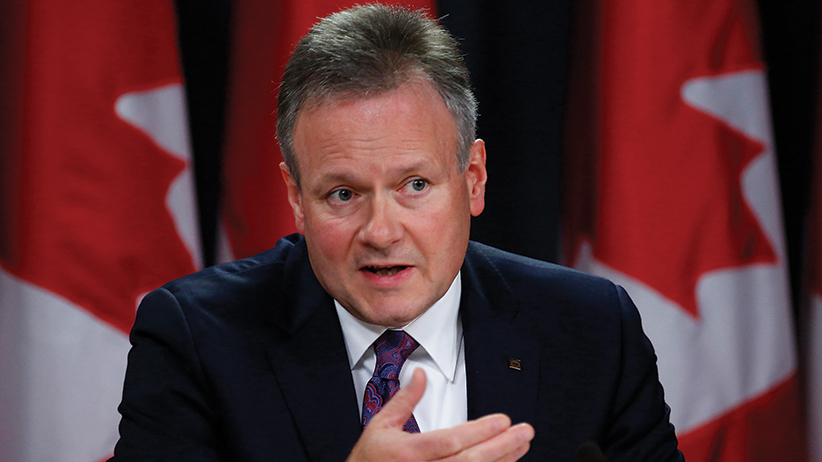The politics of Poloz’s economic outlook
“It’s really like there’s two economies.”
The incoming Bank of Canada governor Stephen Poloz speaks at a press conference after his appointment as the new governor of the Bank of Canada in Ottawa, Ontario, Canada, on Thursday, May 2, 2013.
Share
Bank of Canada governor Stephen Poloz’s surprise interest-rate cut today has economists and market players scrambling to adjust their assumptions, but political strategists must also be trying to figure out how the economic news changes the equation for a 2015 federal election.
After reducing the central bank’s so-called overnight rate to 0.75 per cent—the trend-setting rate had been stuck at one per cent since September 2010—Poloz held a news conference just off Parliament Hill. To my ear, the key part for political calculations was his handy summary of the separate tracks he expects Canada’s “two economies” to travel along for the rest of this year.
It goes without saying that the plummet in oil prices is what prompted Poloz’s interest rate move. The bank says the decline with “weigh significantly on the Canadian economy.” But, as he later explained, really only the oil economy, and, he predicted, only for the first half of the year. Here’s what he said:
“The layoffs in the oil sector won’t be offset by enough growth in other sectors for awhile. But we think the positive trend is under the surface, that things are getting stronger. So in the second half of the year we’re going to see that emerge from this much more strongly.”
Assuming that Prime Minister Stephen Harper wants to face the voters when the economy feels like it’s on an upswing, then Poloz’s two-act scenario for the economy in 2015 argues strongly for the Tories sticking with a fall campaign, as dictated by Harper’s not-so-binding fixed-election date law, rather than seeking, as some have speculated he might, a pretext for going to the polls in the spring.
Poloz went on to highlight what is now conventional wisdom, that the slump in the oil sector will be offset by a rise in other parts of the economy—notably manufacturing exporters in (as we in Ottawa are prone say) vote-rich Ontario. Here’s how he conveniently sketched the outlook:
“It’s important to keep in mind that it’s really like there’s two economies. Like we’ve had for the last few years—there’s a really strong energy economy and a relatively lacklustre non-energy economy. Two speeds. And now what we have is that the speeds will get closer together; one’s rising and the other one’s falling. But the immediate part is the fall, the oil price part, and the rest is just gathering momentum.”
The political question that arises here is whether Harper, who is so closely identified with the Alberta oil economy, can now link his brand to that other economy, especially the Ontario manufacturing sector, sufficiently that he gets some credit from voters, if Poloz proves right and they have reason to feel more upbeat by next fall.
The aim of the opposition parties, meanwhile, has to be to deny Harper any credit, should the non-oil part of the economy show the buoyancy Poloz predicts by election time. We heard Liberal Leader Justin Trudeau trying to do just that yesterday, in a speech to Liberals in which he painted the Prime Minister as having had no economic strategy beyond pumping fossil fuels. “Oil prices are through the floor,” Trudeau said, “and Mr. Harper has no backup plan—none.”
Let’s say Poloz is right. Next fall the economy feels fine, except in oil country. Will Harper benefit? Or will voters decide the upside is none of his doing? It could be the judgment call the decides the election outcome.
